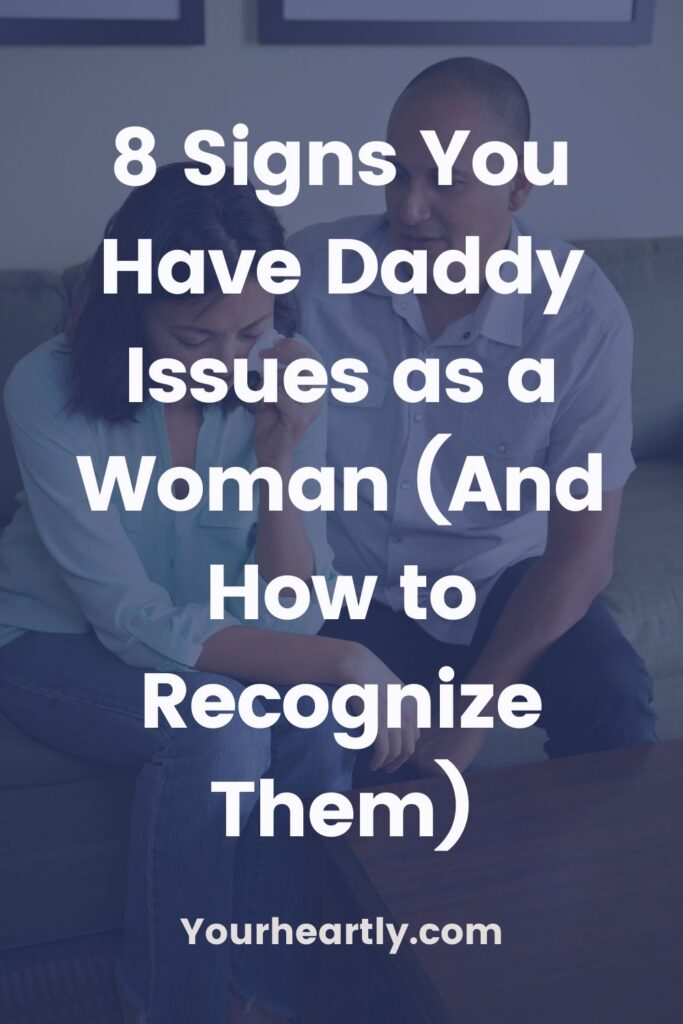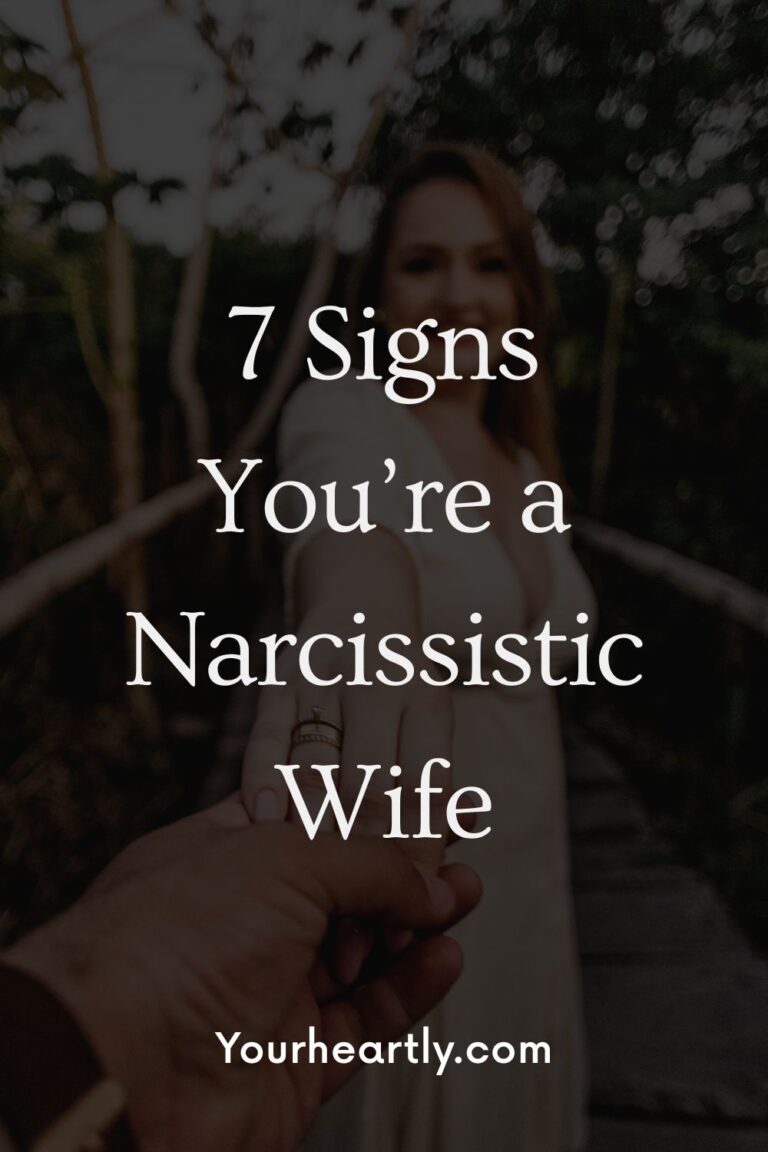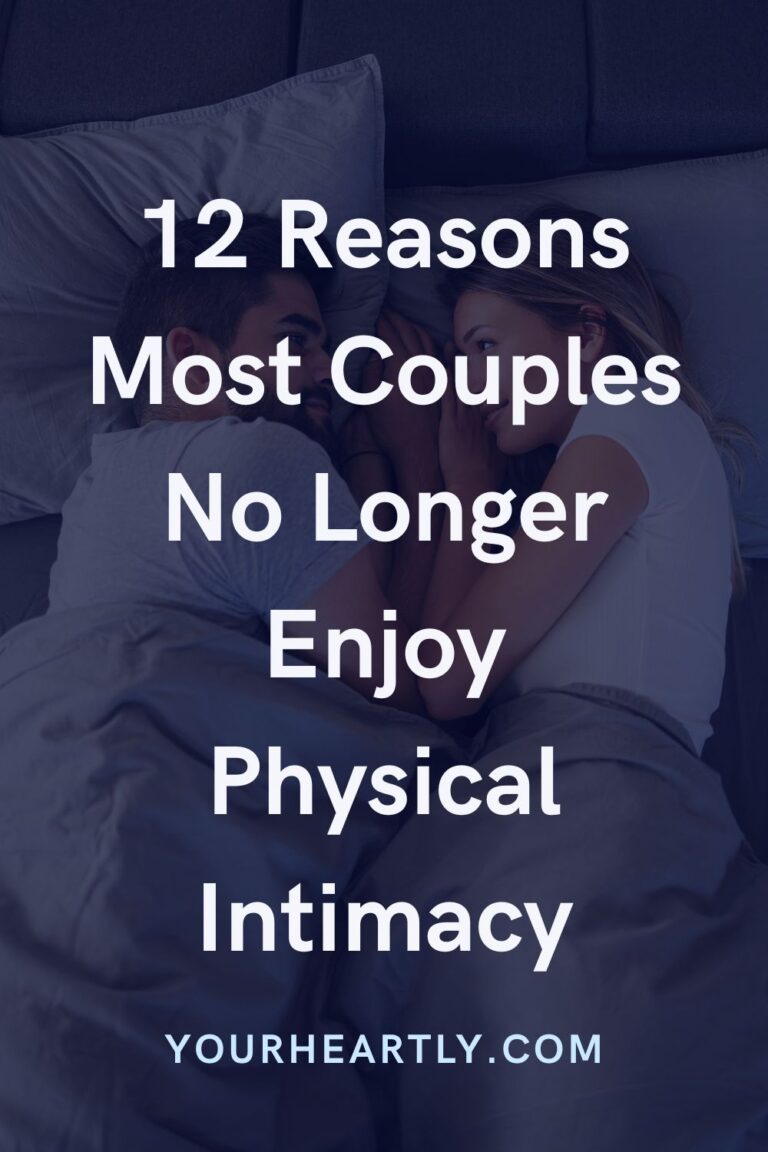Have you ever found yourself wondering why you’re drawn to certain types of relationships or why love feels more complicated than it should? Maybe you notice patterns in your dating life that repeat themselves, no matter how hard you try to break free from them. If so, you might be experiencing what many people casually call “daddy issues.”
The term might sound harsh, but it simply refers to the emotional struggles that come from an unhealthy, complicated, or absent relationship with your father or father figure while growing up. Your relationship with your dad is often the first model of how love, security, and trust work. When that bond is broken or missing, it can leave lasting marks on your self-esteem, relationships, and emotional wellbeing.

As a woman, you may find yourself subconsciously seeking validation, attention, or love in ways that trace back to the dynamics you experienced with your father. This doesn’t mean you’re broken or doomed to repeat the past. Instead, becoming aware of these signs is the first step toward healing, growth, and creating healthier relationships moving forward.
In this article, we’ll explore 8 clear signs you may have daddy issues as a woman. Each sign will help you reflect on your own experiences and recognize patterns that may have shaped your emotional world. Remember, awareness is not about blaming yourself—it’s about giving yourself the tools and understanding to build a stronger, more fulfilling future.
Let’s dive into the signs and what they really mean for you.
1. You Constantly Seek Male Validation
If you often feel the need to hear compliments, approval, or reassurance from men, it may be tied to unresolved father-daughter dynamics. Growing up without consistent encouragement from your father can create a longing for external validation that follows you into adulthood.
You might notice yourself feeling anxious if a man doesn’t compliment your looks, notice your achievements, or give you attention. It’s as if part of your self-worth depends on how men view you. While everyone enjoys being appreciated, the difference here is that you need male validation to feel valuable, rather than simply enjoying it when it comes.
This pattern can influence both your romantic relationships and your interactions in everyday life. For instance, you may dress a certain way or alter your behavior just to gain approval. Or, you may feel uncomfortable or insecure if you don’t get enough attention from men, even when surrounded by friends and family.
The root of this behavior often lies in trying to fill an emotional gap left by your father’s lack of validation. Recognizing this need allows you to shift the focus back to yourself—learning to appreciate your own worth, celebrate your achievements, and set standards that don’t rely on external approval.
Healing begins with self-love. When you validate yourself, external praise feels like a bonus instead of a necessity.
2. You Struggle With Trust in Relationships
Do you often question your partner’s loyalty, second-guess his intentions, or assume he might eventually leave? A lack of trust is a common sign of unresolved daddy issues.
If your father was absent, inconsistent, or unreliable, you may have internalized the belief that men cannot be trusted. This can show up in your relationships as fear of betrayal, jealousy, or constant worry about abandonment. Even when your partner gives you no reason to doubt him, your past experiences may whisper otherwise.
This lack of trust doesn’t only create stress for you; it also puts strain on your relationships. Constant suspicion or emotional walls can make your partner feel unappreciated or shut out. On the flip side, you might end up tolerating untrustworthy partners because deep down, you expect men to let you down anyway.
Breaking this cycle requires addressing the root cause. Trust isn’t built overnight—it comes from understanding that your partner is not your father and learning to separate past wounds from present realities. Therapy, journaling, and open communication can help you replace fear-driven thoughts with healthier expectations.
When you work through this, you give yourself the freedom to experience love that feels secure, steady, and fulfilling—without the shadow of distrust.
3. You Fear Abandonment
One of the strongest emotional scars from an absent or distant father is a deep fear of being abandoned. You may find yourself clinging tightly to relationships, even unhealthy ones, simply because you’re terrified of being left behind.
This fear can cause you to ignore red flags, stay longer than you should, or tolerate mistreatment in order to avoid the pain of rejection. The thought of someone leaving feels unbearable, often leading you to overcompensate—doing too much, giving too much, or sacrificing your own needs to keep someone around.
At the same time, this fear can also push you toward relationships that move too quickly. You may rush into commitment because being alone feels unsafe, rather than waiting to build a healthy foundation.
The root of this fear often stems from not receiving consistent emotional support from your father. As a child, his absence may have left you feeling unworthy of love, and as an adult, you try to prevent that wound from reopening at any cost.
Healing means realizing that abandonment doesn’t define your worth. By working on self-trust and building a strong relationship with yourself, you’ll discover that your value isn’t tied to whether someone stays or leaves. With time, you’ll begin to choose relationships out of desire, not desperation.
4. You’re Attracted to Unavailable Men
If you find yourself repeatedly drawn to men who are emotionally distant, unavailable, or even already committed, this could be another sign of daddy issues.
Often, women with strained father relationships unconsciously chase the same patterns they grew up with. If your dad was distant, you may feel “at home” with men who act the same way. It’s not because you enjoy being neglected, but because it feels familiar. Your brain may trick you into thinking that if you can finally win the affection of an unavailable man, you’ll heal the wound left by your father’s absence.
Unfortunately, this rarely works. Instead, it leaves you stuck in cycles of chasing love that feels out of reach, reinforcing feelings of rejection and low self-worth.
Breaking free requires recognizing the pattern and asking yourself hard questions: Why do I feel comfortable around unavailable men? What would it look like to be with someone who chooses me fully?
Once you start valuing yourself enough to expect availability, you’ll begin attracting partners who are ready for a healthy, balanced connection.
5. You Have Difficulty Setting Boundaries
Boundaries are essential for healthy relationships, but if you grew up in a household where your emotional needs weren’t respected, you may struggle to set them as an adult.
You might say “yes” when you want to say “no,” feel guilty for asserting yourself, or constantly put other people’s needs before your own. Deep down, you may fear that standing up for yourself will cause people to reject or abandon you.
This tendency often traces back to trying to earn your father’s approval as a child. If he was critical, absent, or hard to please, you may have learned to suppress your own needs in order to avoid conflict or gain affection.
The danger of poor boundaries is that they can lead to toxic dynamics, where you’re over-giving and under-receiving. You may attract partners or friends who take advantage of your inability to say no, leaving you drained and resentful.
Healing starts with understanding that boundaries are not selfish—they are an act of self-respect. Learning to communicate your limits clearly, without fear or guilt, helps you create relationships that are healthier, more balanced, and more fulfilling.
6. You Struggle With Self-Worth
Do you often feel like you’re not good enough, no matter how much you achieve? A damaged or absent father-daughter relationship can plant deep doubts about your value and worth.
As a child, you may have internalized the belief that if your father didn’t show love or approval, it must have been because you weren’t worthy of it. This false belief can follow you into adulthood, making you question your abilities, beauty, and place in the world.
Low self-worth can show up in different ways: settling for less than you deserve, overachieving in an attempt to “earn” love, or comparing yourself harshly to others. You may even downplay your accomplishments, believing that nothing you do is ever enough.
The truth is, your worth was never dependent on your father’s attention. Healing requires reframing these inner beliefs and learning to see yourself as whole, capable, and deserving of love just as you are.
Through affirmations, self-compassion practices, and surrounding yourself with people who uplift you, you can slowly rewrite the story you’ve been telling yourself. When you recognize your worth, you stop begging for love and start choosing it.
7. You Crave Control in Relationships
Sometimes, unresolved father wounds can lead you to seek control in your relationships. If your childhood felt unpredictable or unstable, you may try to manage or control your partner’s actions as a way to protect yourself from being hurt again.
This can look like constantly checking up on your partner, needing to know where he is, or feeling uneasy if things don’t go your way. While this behavior often comes from fear rather than manipulation, it can create unnecessary conflict and tension.
Control becomes a defense mechanism—you believe that if you can control the situation, you can prevent being abandoned or hurt. But in reality, it only creates distance and robs you of the chance to experience love that is free and natural.
Letting go of control requires trust—not just in your partner, but in yourself. By learning to self-soothe and reassure yourself during moments of insecurity, you reduce the need to micromanage your relationships. Healthy love thrives on freedom, not control.
8. You Feel Uncomfortable With Healthy Love
Perhaps one of the most telling signs of daddy issues is struggling to accept love that feels safe, consistent, and genuine.
If you’re used to chaos, inconsistency, or emotional distance, healthy love might feel “boring” or too good to be true. You may find yourself doubting it, pushing it away, or sabotaging relationships because deep down, you don’t know how to trust stability.
This happens because your nervous system becomes wired to expect drama or pain. When someone treats you with kindness and respect, it feels unfamiliar. Instead of embracing it, you may run toward partners who replicate the unhealthy patterns you know best.
Healing means retraining your mind and heart to see healthy love as safe, not suspicious. It takes patience, therapy, and conscious effort, but with time, you can learn to lean into stability and allow yourself to be loved fully.
When you open yourself to healthy love, you discover that relationships don’t have to be exhausting battles—they can be peaceful, supportive, and deeply fulfilling.
Conclusion
Having “daddy issues” doesn’t mean you’re broken—it means you’ve experienced wounds in one of your earliest and most important relationships. These patterns can shape the way you see yourself, the way you love, and the way you connect with others.
The good news is that awareness brings power. By recognizing these signs in your life, you take the first step toward healing and change. It may not be easy, but learning to validate yourself, set boundaries, and embrace healthy love will transform not only your relationships but also your sense of self.
You deserve love that feels safe. You deserve to feel whole. And most importantly, you deserve to write a new story for yourself—one that is no longer dictated by your past, but built on the future you choose.
FAQs
1. What does it really mean to have daddy issues?
It means you may have unresolved emotional wounds from your relationship with your father, which can impact your self-esteem, trust, and relationships as an adult.
2. Are daddy issues only about absent fathers?
Not necessarily. Even if your father was present, emotional neglect, inconsistency, or harsh criticism can still lead to similar struggles.
3. Can daddy issues affect friendships too?
Yes. These patterns don’t only show up in romantic relationships—they can also influence how you connect with friends and colleagues.
4. How can I heal from daddy issues?
Healing may involve therapy, journaling, self-reflection, and building self-worth. Surrounding yourself with healthy, supportive relationships also helps.
5. Does having daddy issues mean I’ll always struggle in love?
No. With awareness and healing, you can create healthier, more fulfilling relationships. Your past may shape you, but it doesn’t define your future.





